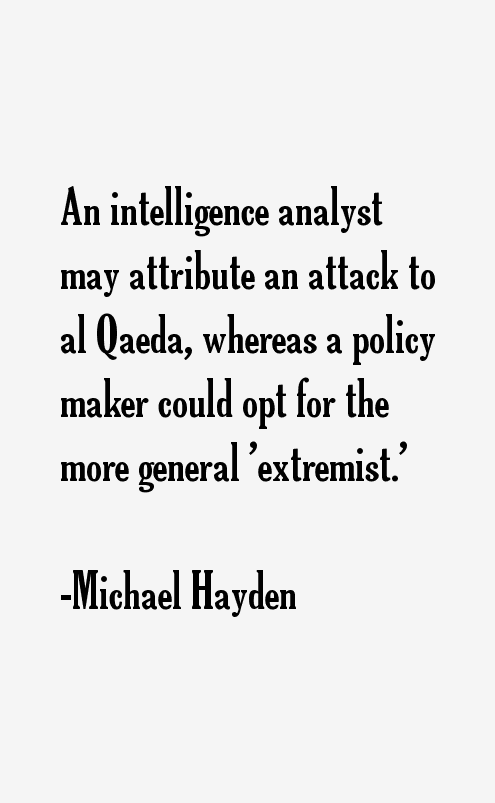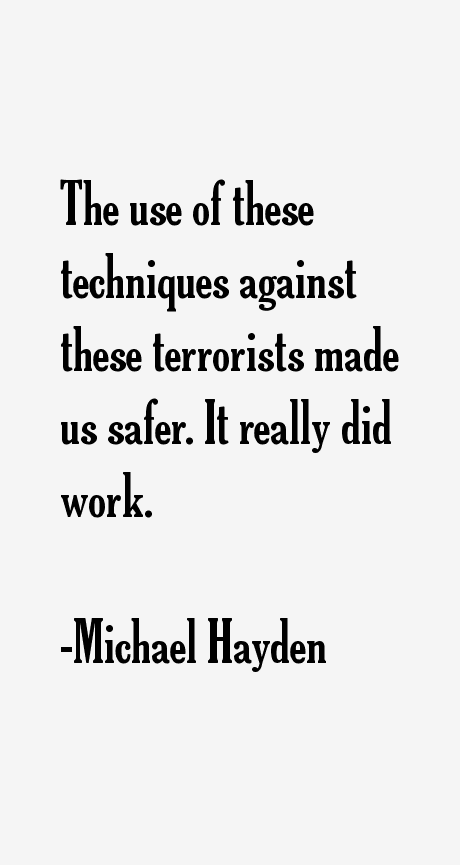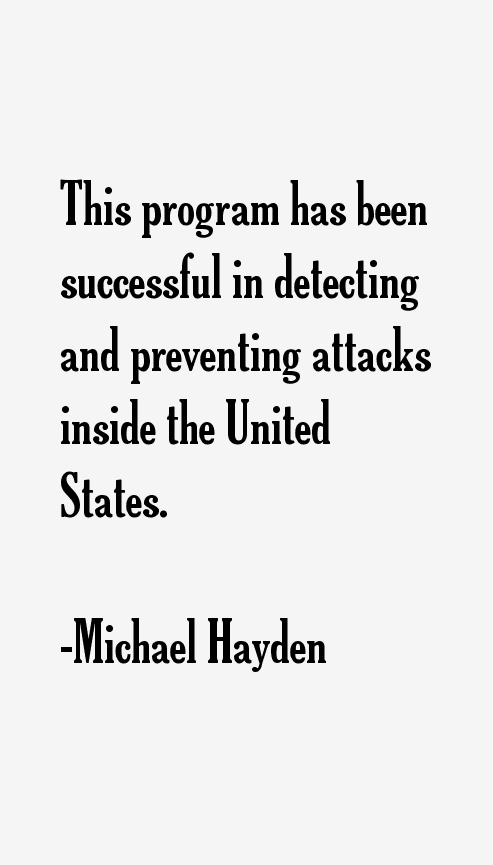Michael Hayden Quotes & Sayings (Page 2)
Michael Hayden quotes and sayings page 2 (62 year old public servant). These are the last 9 out of 19 quotes we have for him.

“For all of its well-deserved reputation for pragmatism, American popular culture frequently nurtures or at least tolerates preposterous views and theories. Witness the 9/11 'truthers' who, lacking any evidence whatsoever, claim that 9/11 was a Bush administration plot.”

“I told them that free people always had to decide where to draw the line between their liberty and their security. I noted that the attacks would almost certainly push us as a nation more toward security.”
“Right after 9/11, I mean, every agency can give their own gradation, but a nice, popular rule of thumb is everybody doubled down. I ended up in the NSA with about twice as much money as I had prior to 9/11.”

“An intelligence analyst may attribute an attack to al Qaeda, whereas a policy maker could opt for the more general 'extremist.'”
“When I was director of the CIA, I knew that we had been - and I'm choosing my words very carefully here - effective in our expansion. We really had - expansion of government agencies and expansion of use of contractors. Effective, we were; efficient, we weren't. And so, as director of the CIA, I went after the inefficiencies part.”

“The use of these techniques against these terrorists made us safer. It really did work.”

“This program has been successful in detecting and preventing attacks inside the United States.”

“Despite a campaign that was based on a very powerful promise of transparency, President Obama, and again in my view quite correctly, has used the state secrets argument in a variety of courts, as much as President Bush.”
“There's this movie, 'Zero Dark Thirty' about the hunt for Osama bin Laden. Some have complained that too many 'secrets' were dished out by the intelligence and special operations communities to director Kathryn Bigelow, screenwriter Mark Boal and their crew, part of a broader pattern of using intelligence for political effect.”
Michael Hayden Quotes Rating
No Ratings Yet
Leave A Comment
























